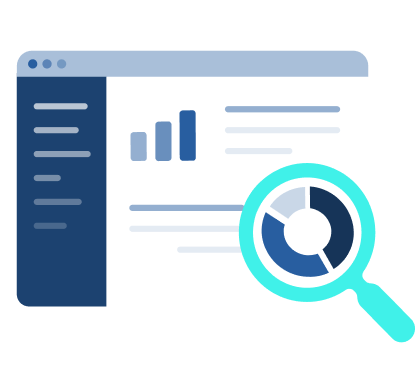Insider Insights: Unlocking the Power of Data to Optimise Cross-Border Transactions
.png)

Through the “Insider Insights” series, we delve into the complex nature of cross-border transactions from diverse viewpoints. As businesses strive to navigate the global marketplace, data has emerged as a game-changer, reshaping how international transactions are conducted. Today, data is not just a by-product of business operations, but a critical asset the drives efficiency, mitigates risks, and fosters trust in cross-border dealings.
Building Cross-border Trust with Data
Picture this: You're a business owner looking to partner with a supplier halfway across the world. How do you know if they're trustworthy? This is where data steps in as your digital detective. According to Jene Lim, Deputy General Manager for Experian Credit Services in Southeast Asia, “Without face-to-face interactions, verifying the legitimacy of business counterparts becomes a complex task.”
"One of the biggest challenges in international dealings is the prevalence of certain risks," Jene pointed out. These risks include fraud risk (uncertainty about a company's legitimacy), credit risk (insufficient local data to gauge payment reliability), and Anti-Money Laundering (AML) and Know-Your-Customer (KYC) risks (affecting businesses dealing with sanctioned goods and countries).
But with data technology, companies can now verify a potential partner's legitimacy, check their financial health, and even scan for any red flags in their history - all with a few clicks.
Fraud risk, a significant concern in cross-border transactions, can be mitigated through due diligence facilitated by data. Jene highlights the importance of this process: “The first step is to verify whether the entity is legitimate and incorporated in the local country’s registry. The next step is to check who the shareholders and directors are, and whether they appear on any watch lists or have been involved in adverse news.”
Additionally, credit risk is managed through financial data, assessing a company’s reliability in making payments “based on financial trends observed over the past few years,” she noted. The complexities of AML and KYC regulations are also navigated with the aid of comprehensive data.
Power of Data-driven Automation
The trend towards streamlining data collection through a single data source is a response to the pronounced risks in international transactions. Jene discussed the move towards automation: “There’s a growing trend towards streamlining the collection of this information. The move is towards a single data source, utilising APIs or XML formats for structured data, to automate data acquisition and exchange,” she highlighted. This approach not only enhances operational efficiency but also helps businesses navigate the complexities of international transactions more effectively.
Automation is a key focus, with robotic process automation (RPA) offering a solution for companies that lack the technological resources to set up APIs. Jene explains the shift: “The shift is towards consolidation, opting for a few reliable data sources rather than multiple providers, to reduce integration efforts and focus on acquiring new business and serving customers better.” The goal is to establish a universal access point to necessary data, reducing integration efforts and improving efficiency.
Fostering Global Business Synergy through Stronger Collaboration
Despite the benefits, leveraging data in cross-border business encounters several challenges. Data availability varies significantly across regions. Jene pointed out, “While data may be readily available and instantly accessible in digitally advanced markets like Singapore, Malaysia, and China, other regions may still be very paper-based, offering limited data depth and availability.” Data comparability, language barriers, and varying turnaround times for data retrieval also complicate the process, affecting decision-making processes and operational efficiency.
Jene emphasised the importance of collaboration and industry partnerships in harnessing the full potential of data for seamless cross-border transactions. For small and medium-sized enterprises (SMEs), having access to alternative information can enable full participation in the business ecosystem. “Data, particularly official data, is hard to come by due to the challenges I mentioned. Especially for SMEs, the data available to them is often even more limited. The potential for collaboration lies in our ability to gather more alternative information on such data, giving SMEs the opportunity to participate fully in the ecosystem and be recognised by potential customers and suppliers,” she said.
The potential of safe and trusted data exchange to unlock significant opportunities was also highlighted by Jene. “The real potential of this ecosystem is to come together to see if we can be more open to exchanging or sharing data, despite concerns about the sensitivity of such data” she emphasised.
Data-driven Insights Pave the Way to a Borderless Future
Jene envisions a world where data plays a central role in facilitating seamless cross-border transactions. Advanced technology and comprehensive data integration can digitise the entire decision-making process, making international business more efficient and secure.
“I believe that to enable seamless transactions, the underlying tech stack and technology are crucial. There are market trends aimed at making payments fast and seamless. However, from my perspective, it’s also about incorporating the data perspective. It’s about digitising the entire decision-making process,” she concluded. This vision aligns with the broader trends in the industry, where data is not just an asset but harnessed as a catalyst for innovation and growth in the realm of cross-border business.

For the latest insights into the evolving FX and payments landscape, follow M-DAQ Global on LinkedIn. Learn how we help businesses navigate seamless cross-border transactions by visiting our website at www.m-daq.com.
Interested to learn how we can support you with FX clarity and certainty?






.png)
.png)